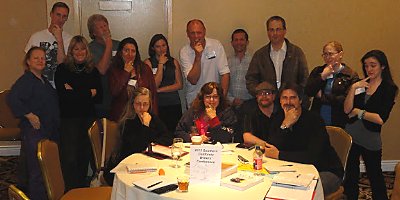All workshops and events will take place at the conference hotel, Crowne Plaza San Diego, located conveniently at 2270 Hotel Circle North, San Diego, CA 92108.
Workshops: Read & Critique
- All-Genre
- Commercial/Women’s/Memoir/Romance/Narrative
- Literary/Alternative/Narrative Nonfiction
- Mystery/Suspense/Thriller/Crime
- Paranormal/Horror/Transcendental
- Query Letters
- Read, Critique & Live to Write Another Day
- Rogue Workshops: All-Genre
- Rogue Workshops: Sci-fi & Fantasy
- Young Adult/New Adult
Workshops: Fiction Craft & Execution
- (To Be Announced)
- (To Be Announced)
- (To Be Announced)
- (To Be Announced)
- (To Be Announced)
- (To Be Announced)
- (To Be Announced)
- (To Be Announced)
- (To Be Announced)
- (To Be Announced)
Workshops: Memoir/Creative Nonfiction
- (To Be Announced)
- (To Be Announced)
- (To Be Announced)
- (To Be Announced)
- (To Be Announced)
- (To Be Announced)
- (To Be Announced)
- (To Be Announced)
- (To Be Announced)
- (To Be Announced)
Workshops: Path to Publication
- (To Be Announced)
- (To Be Announced)
- (To Be Announced)
- (To Be Announced)
- (To Be Announced)
- (To Be Announced)
- (To Be Announced)
- (To Be Announced)
- (To Be Announced)
- (To Be Announced)
Panels, Appointments and Events
- Advance Submission One-on-One Consultations
- No-host Mixer
- Page One Cage Match
- Special Guest Speaker: TBA
- Special Guest Speaker: TBA
- Special Guest Speaker: TBA

